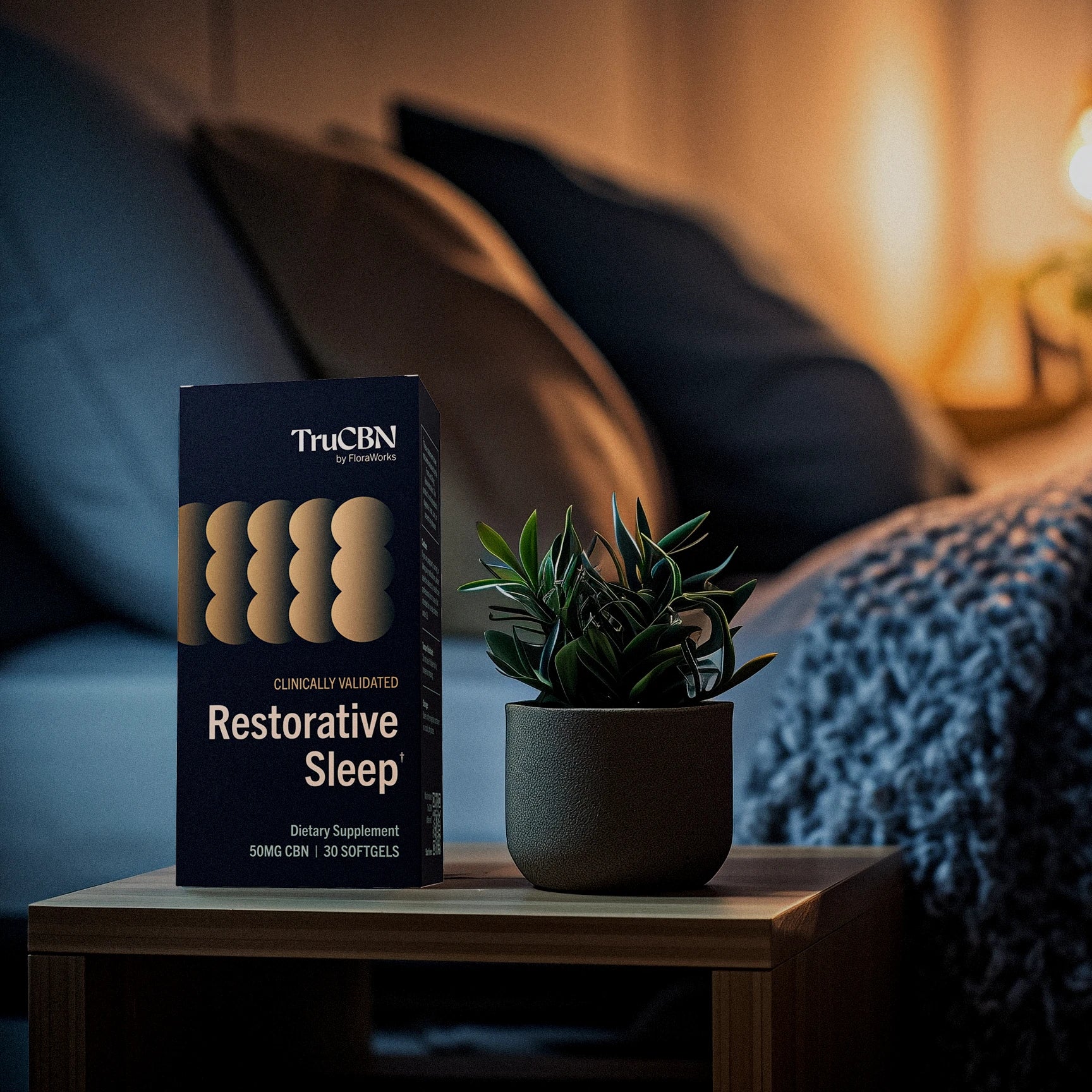Quality Sleep = Stronger Relationships

Introduction
The connection between quality sleep and emotional well-being is often overlooked, yet it plays a critical role in how we interact with others. Sleep is more than a period of rest; it’s an essential process that regulates our emotions, enhances empathy, and equips us to handle the complexities of relationships. Without adequate sleep, even minor disagreements can escalate, and the ability to connect with loved ones on a deeper level diminishes. In contrast, restorative sleep fosters patience, understanding, and resilience, which are key ingredients for strong, healthy relationships.
Scientific research has consistently demonstrated that sleep deprivation negatively impacts emotional regulation, empathy, and conflict resolution—all of which are fundamental to thriving interpersonal connections. This article delves into the science behind sleep and emotional health, examines how quality sleep strengthens relationships, and offers practical tips to improve both rest and relational harmony.
The Science Behind Sleep and Emotional Health
The Role of Sleep in Emotional Regulation
Emotional regulation is the ability to manage and respond to emotions in a balanced way. Quality sleep, particularly during rapid eye movement (REM) cycles, plays a crucial role in processing emotions and maintaining stability. REM sleep allows the brain to sort through daily experiences, consolidate memories, and mitigate emotional reactivity.
When sleep is compromised, the brain’s capacity to regulate emotions diminishes significantly. Studies have shown that individuals who are sleep-deprived experience heightened irritability, mood swings, and difficulty managing stress. For example, research published in the journal Sleep found that participants who experienced even one night of poor sleep showed increased emotional volatility and reduced ability to process negative feedback. This highlights the critical role of restorative sleep in keeping emotions in check and preventing overreactions.
Furthermore, chronic sleep deprivation exacerbates the release of stress hormones such as cortisol, which can make individuals more prone to anxiety and anger. Over time, these emotional instabilities can strain relationships and erode trust. By ensuring sufficient REM sleep, individuals can process emotions more effectively, reducing the likelihood of misunderstandings and emotional outbursts.
Sleep and the Brain’s Empathy Center
Empathy—the ability to understand and share the feelings of others—is a cornerstone of meaningful relationships. Sleep deprivation disrupts the brain’s neural mechanisms responsible for empathy, particularly the amygdala and prefrontal cortex. The amygdala governs emotional responses, while the prefrontal cortex regulates rational thought and impulse control. Together, these regions enable individuals to perceive and respond to the emotions of others.
When sleep-deprived, the amygdala becomes hyperactive, and the prefrontal cortex’s ability to moderate emotional responses weakens. A study published in The Journal of Neuroscience demonstrated that sleep-deprived participants showed a 60% increase in amygdala activity compared to those who were well-rested. This heightened emotional reactivity reduces the capacity for empathy, leading to misunderstandings and conflicts in relationships.
Conversely, well-rested individuals exhibit greater emotional attunement and compassion. Research from the University of California, Berkeley, revealed that participants who enjoyed adequate sleep were better able to recognize subtle emotional cues and respond empathetically to their partners’ needs. This underscores the importance of prioritizing sleep not only for personal well-being but also for fostering deeper emotional connections.
Sleep’s Influence on Stress and Conflict Resolution
Stress and conflict are inevitable in any relationship, but the ability to navigate these challenges depends heavily on sleep quality. Poor sleep heightens stress levels by impairing the body’s ability to regulate cortisol and adrenaline, two hormones associated with the fight-or-flight response. This makes individuals more reactive to perceived threats and less capable of resolving conflicts constructively.
Studies have shown that sleep deprivation impairs problem-solving skills and reduces cognitive flexibility, both of which are crucial for effective communication and conflict resolution. A report in the journal Social Psychological and Personality Science found that couples who were well-rested were significantly more likely to approach disagreements calmly and collaboratively compared to sleep-deprived pairs.
Moreover, lack of sleep can amplify negative emotions during conflicts. Research from the University of Washington revealed that sleep-deprived couples tend to focus on their partner’s flaws rather than strengths, escalating arguments unnecessarily. In contrast, restorative sleep enhances cognitive processing and emotional regulation, enabling partners to engage in healthy, productive discussions.
How Sleep Strengthens Relationships
Enhanced Empathy and Understanding
Empathy is the foundation of healthy relationships, allowing individuals to connect on an emotional level and validate each other’s experiences. Well-rested individuals are better equipped to practice active listening and exhibit patience, both of which are essential for nurturing emotional bonds.
For example, a study published in the journal Sleep found that sleep-deprived participants were less likely to interpret facial expressions accurately, often mistaking neutral or positive expressions for negative ones. This misinterpretation can lead to unnecessary conflicts and misunderstandings in relationships. In contrast, quality sleep sharpens social perception, enabling individuals to respond more appropriately to their partner’s emotions.
Additionally, well-rested individuals are more likely to express gratitude and appreciation, which strengthens relational bonds. Research from the University of California, Berkeley, showed that couples who prioritized sleep reported higher levels of mutual appreciation and emotional intimacy. By improving empathy and understanding, sleep lays the groundwork for deeper, more meaningful connections.
Improved Conflict Resolution Skills
Conflict is an inevitable part of any relationship, but how couples handle disagreements can determine the strength of their bond. Sleep plays a pivotal role in conflict resolution by enhancing emotional regulation and problem-solving abilities.
When individuals are well-rested, they are more likely to approach conflicts with a calm and solution-oriented mindset. For instance, a study in Psychological Science found that sleep-deprived participants were more likely to engage in blame-shifting and exhibit defensive behaviors during arguments. In contrast, those who had sufficient sleep were better able to empathize with their partner’s perspective and work collaboratively toward resolution.
Moreover, restorative sleep fosters cognitive flexibility, which is crucial for considering alternative viewpoints and finding common ground. This reduces the likelihood of prolonged conflicts and promotes healthier communication patterns. By prioritizing sleep, couples can enhance their ability to navigate challenges and maintain harmony in their relationship.
Building Intimacy and Trust
Intimacy and trust are cornerstones of strong relationships, and sleep has a profound impact on both. Quality sleep promotes physical closeness by regulating hormones like oxytocin, often referred to as the “love hormone.” Oxytocin enhances feelings of bonding and trust, creating a sense of security within the relationship.
On the other hand, sleep deprivation can undermine intimacy by increasing irritability and reducing energy levels. Research from the National Sleep Foundation found that couples who experienced chronic sleep deprivation reported lower levels of physical and emotional intimacy. This is because fatigue and mood swings create barriers to connection, making it harder for partners to engage meaningfully with each other.
Restorative sleep also strengthens trust by improving emotional stability. When individuals are well-rested, they are less likely to misinterpret their partner’s intentions or react defensively. This fosters a sense of reliability and mutual respect, which are essential for building a strong, lasting bond.
Practical Tips for Improving Sleep and Strengthening Relationships
Prioritizing Sleep Hygiene
Good sleep hygiene is the foundation for quality rest. Couples can enhance their sleep by sticking to consistent sleep schedules, ensuring a dark, quiet, and cool bedroom environment, and eliminating distractions like phones or late-night TV. Consistency signals to the brain when it’s time to rest, improving sleep quality over time.
Aligning Sleep Schedules
Partners who align their sleep schedules often report better relationship satisfaction. Going to bed at the same time fosters closeness, creating an opportunity for meaningful connection at the end of the day. Establishing shared bedtime rituals, such as reading, light stretching, or reflecting on positive moments, can also strengthen emotional bonds.
Managing Sleep Disorders Together
If one partner struggles with sleep disorders, such as snoring, sleep apnea, or insomnia, it’s essential to address these issues collaboratively. Seeking medical advice, using sleep aids like CPAP machines for sleep apnea, or practicing relaxation techniques can improve both partners’ sleep quality and reduce relational tension.
Shared Relaxation Techniques
Practicing relaxation techniques as a couple, such as guided meditation, deep breathing exercises, or gentle yoga, can help ease stress and create a calming bedtime routine. These activities promote mindfulness, reduce anxiety, and foster intimacy by allowing couples to wind down together.
The Broader Implications of Quality Sleep
Community and Workplace Benefits
Beyond personal relationships, quality sleep has a ripple effect that strengthens broader social bonds. Empathy and emotional regulation cultivated through sleep enhance teamwork and cooperation in professional settings. Workplaces that encourage balanced sleep schedules report fewer conflicts and higher employee satisfaction. For example, sleep-awareness initiatives have been shown to reduce workplace burnout, improving overall productivity.
Sleep Education in Schools and Society
Educational institutions and public health organizations can play a pivotal role in fostering awareness about the importance of sleep. Sleep education integrated into school curriculums can help young people develop healthy habits early on, equipping them to build stronger personal and professional relationships throughout their lives.
Campaigns advocating for sleep as a public health priority—similar to anti-smoking or fitness movements—can help destigmatize rest. By addressing societal norms that glorify overwork and lack of sleep, communities can embrace the idea that better rest leads to stronger, healthier relationships on every level.
Conclusion
Quality sleep is not just a personal health goal; it’s a relational superpower. The science is clear: restorative sleep enhances empathy, strengthens emotional regulation, and equips individuals to navigate conflicts with patience and understanding. From fostering deeper connections with loved ones to creating harmonious workplaces and communities, sleep impacts every aspect of our social lives.
By prioritizing good sleep hygiene, aligning schedules with partners, and addressing sleep-related challenges collaboratively, couples can unlock the full potential of their relationships. As society recognizes the broader implications of quality sleep, we can collectively move toward a culture that values rest as a foundation for connection, productivity, and well-being.
So tonight, turn off the screens, dim the lights, and embrace the power of sleep—because stronger relationships start with a well-rested mind and heart.





